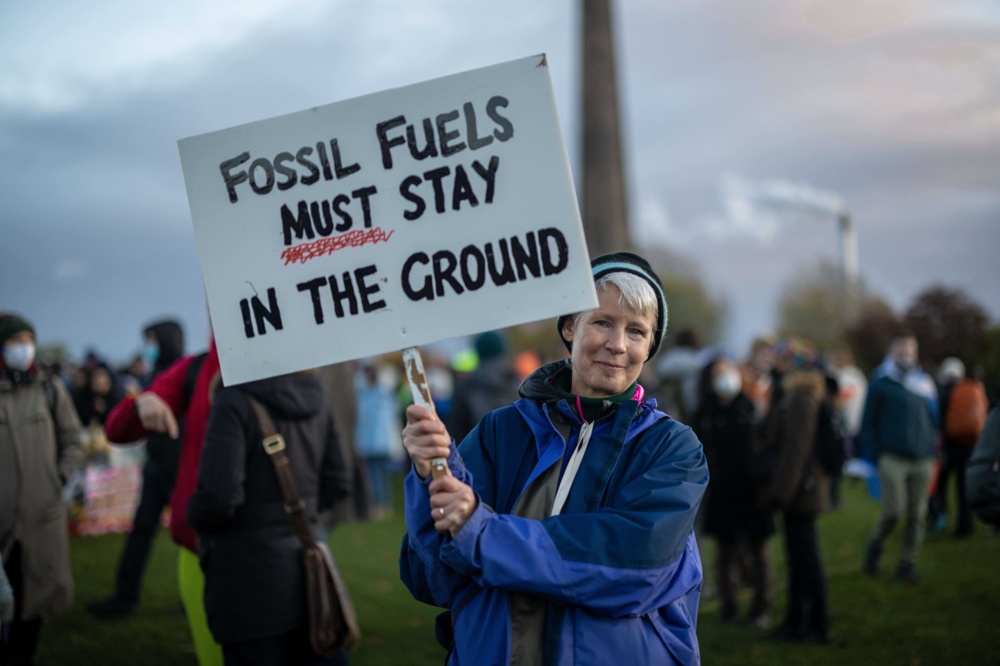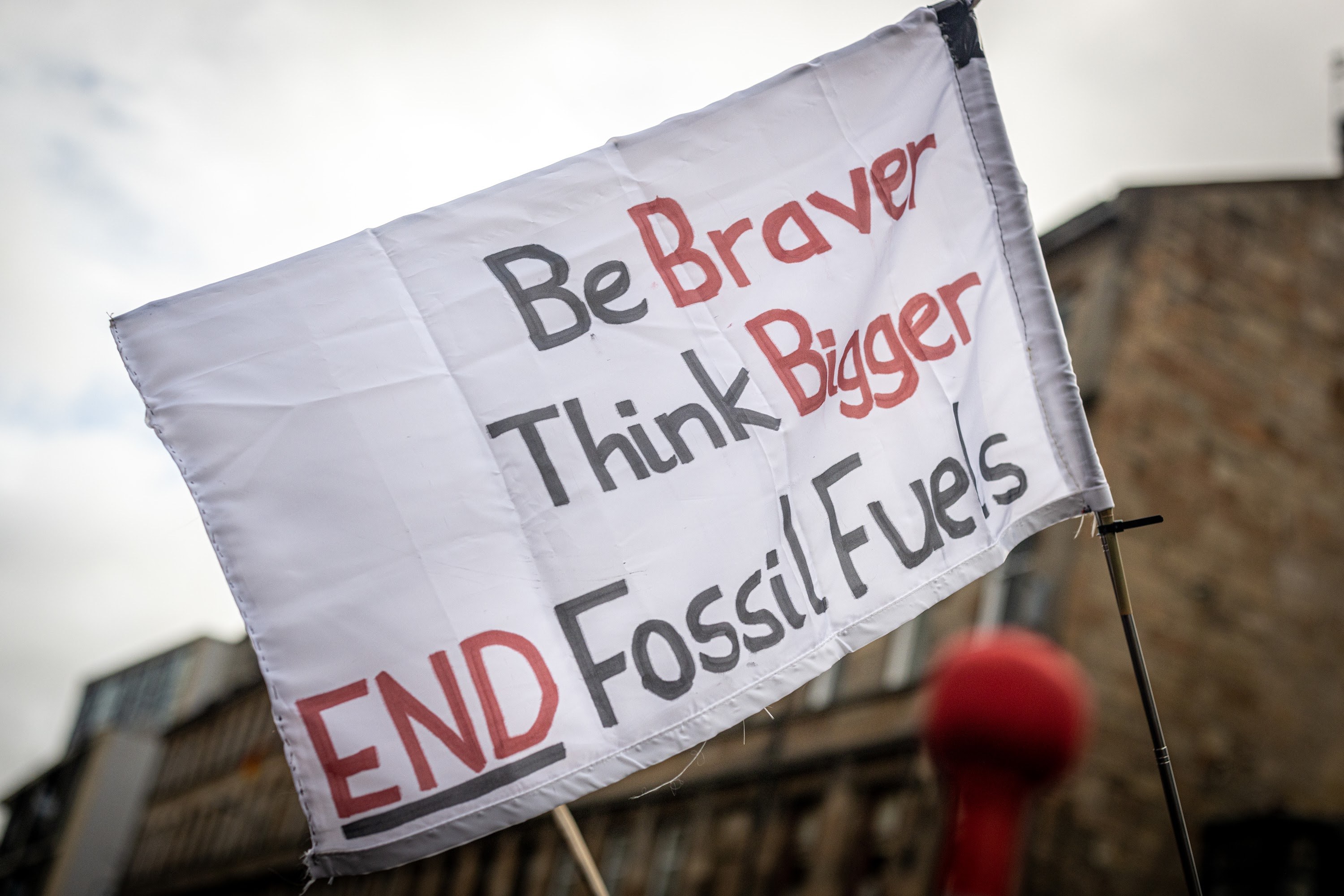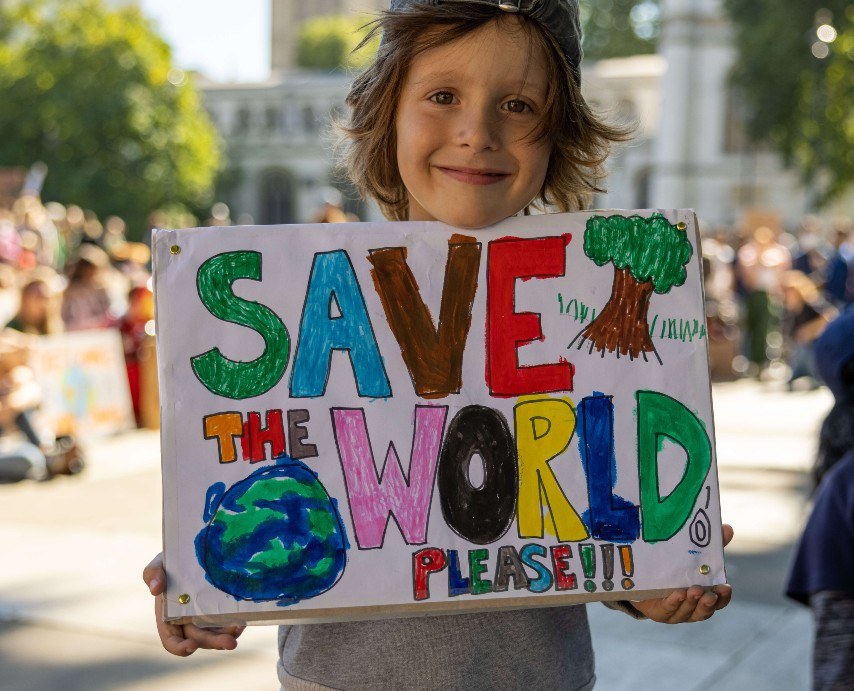
Our work at COP26: Taking stock and looking to the future
The Glasgow climate negotiations were a chance for the world to make a decisive step towards a sustainable future. Some tentative steps were taken but not the massive scaling of ambition and action needed to avert climate catastrophe.
Throughout the conference, the EJF team worked with activists, media, NGOs and leaders to demand action, share key commitments made by governments, draw attention to the loopholes created in new agreements, and to amplify the voices of those without a seat at the table.
Pushing for justice
EJF is a pioneer - our work to show that the climate crisis is also a human rights crisis has moved the debate forward in both the public and political domains. A decade of campaigning has taken us from a time where no-one spoke of ‘climate refugees’, to today, where the term is readily used in media and policy circles to reflect the growing threat climate breakdown poses to the most fundamental human rights.
To use our experience and expertise to best advantage we launched two hard-hitting reports directly before the conference itself. ‘You will see who gets the lifeboats’: Injustice on the frontlines of the climate crisis in the US demonstrates how existing social and racial inequalities put marginalised communities in the US at greater risk of suffering in the face of climate impacts, and how those inequalities will be exacerbated as the climate crisis deepens. No shelter from the storm: The urgent need to recognise and protect climate refugees was a legal analysis, written with pro bono support from legal firm DLA Piper, which showed that legal protections for those forced from their homes by the climate crisis are patchy and not fit for purpose. To show the tragic human consequences of these laws and policies, we matched the report with a film about a family with two young sons and a daughter, who have lost their home in Bangladesh three times to increasingly severe weather. We tell their story in our film Surviving the Storms.
All our action at COP was based around our core roadmap to a safe and sustainable future for people and planet. Our Climate Manifesto brings to bear EJF’s long experience of working with people on the frontlines of the climate crisis and combines it with scientific research to create a clear roadmap of measures across all sectors – energy, transport, construction, agriculture and clothing – that can be taken by governments today to achieve a just, zero-carbon world.
This will of course require great investment, but decisive action on climate is not a ‘cost’: it is an investment, not just in our future, but in our survival. Such investment would represent the greatest cost-saving of human history.
Investing now means we avoid vast costs, not just of the damage and destruction from extreme weather, but also the need to adapt to a drastically altered climate. The money we spend today will return many times its value, but the ‘Bank of Nature’ will charge a wholly unsustainable rate of interest if we do not pay off our debts now.
Finally, to bring home the findings of our reports and films and achieve real policy change we take them directly to the seats of power. Over the years we have met with senior decision makers from around the world – from presidents to heads of state – helping to shape the global debate. At COP26 we had meetings with policymakers from EU Commission to lay out how progressive policy from the EU can end the damage to climate and erosion of human rights currently being driven by the bloc’s supply chains.
Supporting young activists
Environmental justice and protection of human rights must be at the centre of all climate action – we have a political and moral obligation to recognise this. For decades, and with a fraction of the attention, countries in the global south have suffered the greatest impacts of climate breakdown, in a pattern of gross injustice. 99% of all deaths from weather-related disasters occur in the world’s 50 least developed countries — countries that have contributed less than 1% of global carbon emissions.
We need to make sure that everyone – not just leaders from developed countries – has a seat at the table. However, at COP26, many young climate activists, and especially those from developing countries, were frozen out of talks about their future by the high cost of travel, attendance, and COVID-19 restrictions. Theirs are the voices that need to be heard – they are the ones that will be living with the consequences of our decisions.
EJF supported six young climate activists with bursaries to attend COP, covering their transport, accommodation and living costs, and giving them a chance to share their message.
These activists were from all over the world, from Uganda to Bangladesh, from Peru to the Seychelles, and they all deserve a say in their future. During the conference, the EJF film team interviewed each one, amplifying their voices, sharing their calls to action, and holding world leaders accountable for their lack of action.
In the run up to the conference and during the event, we also interviewed 13 climate activists around the world as part of our “Voices missing from COP” series. We shared their messages on social media, with journalists and through our website, sharing stories that otherwise may not have been heard.
Climate action now
As COP26 ends, the real work must start. We know that we have not done enough. But we also know that we have the solutions. What we need now is the political will to implement the transformation to protect people and the planet. Every one of us is now needed to put our shoulder to the wheel to push forward for the transformation to equitable, sustainable world.
Ultimately, the actions we take over the next 5 years will determine our human experience and the impact on our planet for the next 50,000 years and more. We cannot pause in our efforts; we must not let our attention slide.
SIGN UP FOR OUR EMAILS AND STAY UP TO DATE WITH EJF

